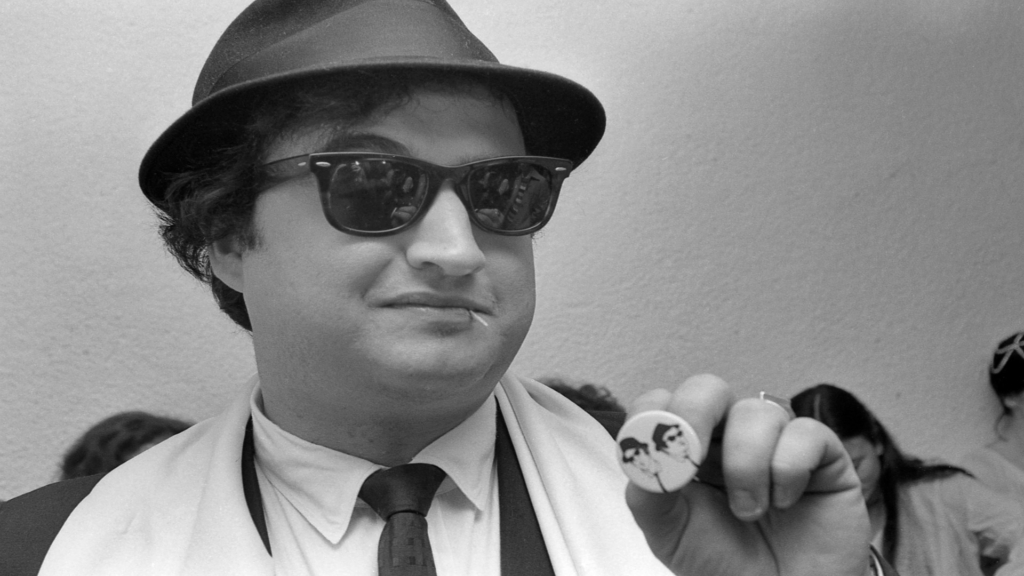
Belushi is the documentary version of the oral biography of the same name. Using phone conversations between author Tanner Colby and those who knew John Belushi—along with family films and photos, footage of Belushi performing, and some clever animation—director R.J. Cutler assembles a poignant, loving, and (of course) funny tribute.
Belushi is best known for his run on Saturday Night Live and the massively popular film National Lampoon’s Animal House. Cutler’s film traces in chronological order his childhood all the way up to his death in 1982 at 33. What’s fascinating is the breadth of interviewees, from his immediate family to his childhood friends, old bandmates, some folks from the Second City improv group, and, naturally, the famous folks that were ground zero for perhaps the most important comedy movement since the Jewish Borscht Belt comics of the 1950s. Ironically, most of the people who formed the backbone of SNL (Dan Aykroyd, Gilda Radner, Martin Short, John Candy, Lorne Michaels) were Canadian.
Having their voices narrate Belushi’s life story really brings home a full picture of the man. This includes, most crucially, Judith Belushi Pisano. This is as much as her story as it is his. She met Belushi in high school and stayed with him until his death. Her presence in his life was clearly profound. There are love letters from him to her peppered throughout that reveal the vulnerability he hid from others. He generally needed to be the center of attention and ringleader in any creative situation (which caused some friction on SNL), but in these letters you hear of his doubts. She’s unabashed in her love for Belushi and honest about the difficulties living with him. Even as there is the inevitable trajectory that nearly any celebrity biopic has, there remains a love story, frank and clear-eyed at its center.
Cutler does a great job putting the pieces together and giving a balanced portrait of the man (turns out Lorne Michaels didn’t seem to like him all that much). Cutler uses a clever concept whenever an action or situation is discussed that doesn’t have corresponding footage: animation that is beautiful and simple, reminiscent of the noir of Frank Miller, but with a bluish tinge competing with the black-and-white. Within these moments, like when a Kurosaki film inspires Belushi to create his samurai character, he transforms back into an excited kid again. Here is where Cutler gets to the heart of Belushi, his rediscovering the enthusiasm and wonder of childhood.
And when that faded, Belushi fell into a pit of excess. Carrie Fisher, a good friend and fellow addict, had this to say about the six months Belushi was clean the year before he died, when everyone thought he was doing well: “It must be a screaming hell for him” because, as Fisher states, addicts are used to avoid feelings they don’t want to confront, and since they haven’t confronted them, they haven’t developed the tools to deal with them.
Belushi is a must-see for anyone interested in comedy in general and worth seeing for a deep dive into the life of a brilliant, flawed, funny, funny man.
















Leave A Comment